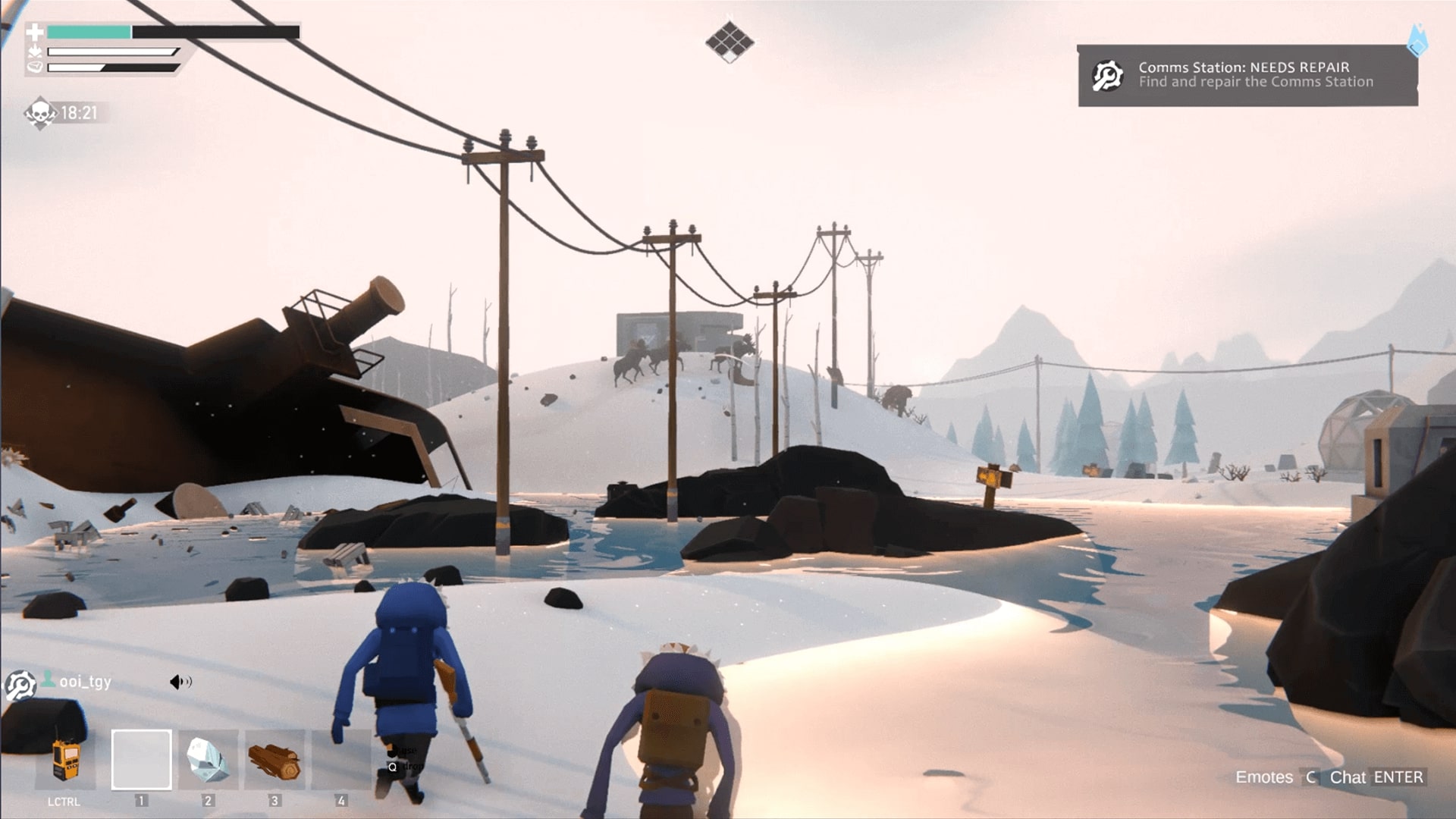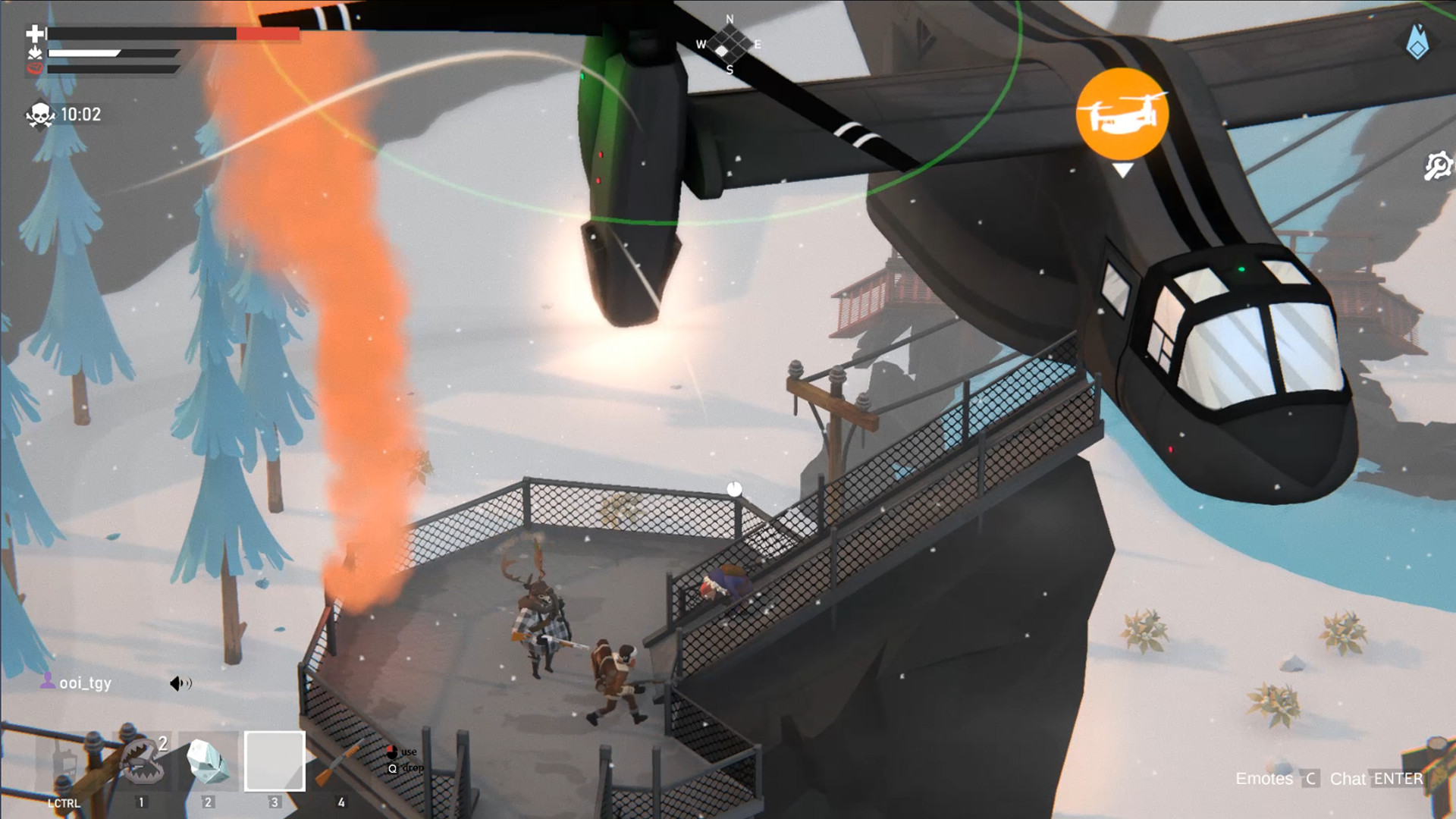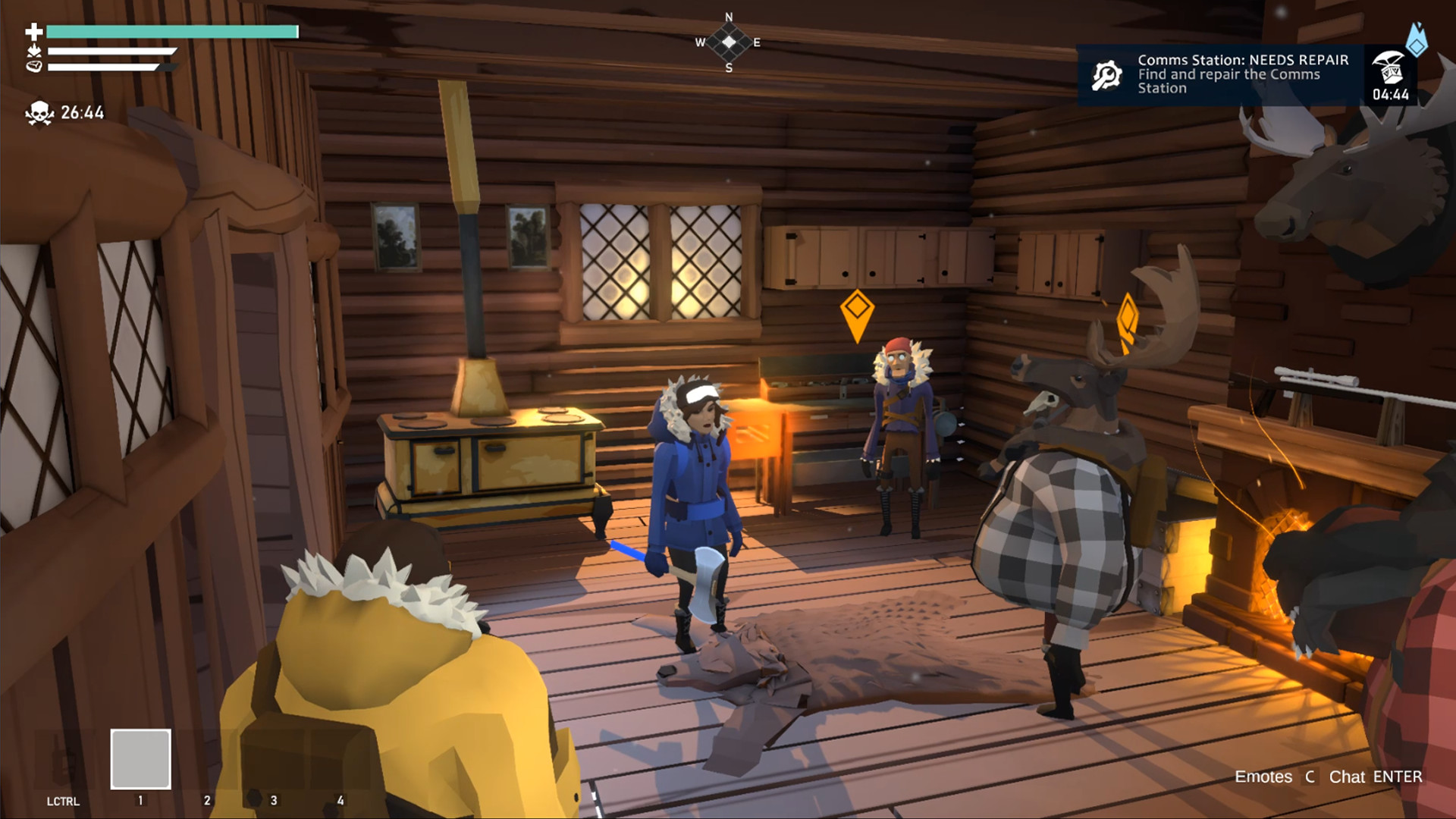‘Project Winter’ Is the Best Game About Betrayal This Year
Credit to Author: Cameron Kunzelman| Date: Tue, 09 Jul 2019 13:11:40 +0000
Postscript is Cameron Kunzelman’s weekly column about endings, apocalypses, deaths, bosses, and all sorts of other finalities.
I’ll admit that my proclivities, when it comes to games, tend toward the sad and dramatic. I write this column, after all, and if you read back in it you’ll find a lot of pieces extolling the virtues of the most downer parts of video games.
I say that so you have proper context for this: There is no feeling quite as exalted as traveling into the far northern wastes with a trusted friend, who has been diligently helping you craft mechanical parts in dogged pursuit of rescue, and hearing them suddenly go silent once you’ve found your goal in that desolate place. Their constant chatter goes dead, and you might whisper a “no” before they equip their axe and start hacking you to death. You scream into chat, but you’re too far away, and the blizzard has driven your allies into the safety of a cabin. You die alone there, and your “friend” trudges back to tell everyone you died to a wolf attack before choosing another victim.
Even worse? They’ve got their own ally who is already there.
This is the core conceit of Project Winter, a game of survivors and those who want to kill them in an arctic hellscape. Each game is made up of eight players: six survivors who have thirty minutes to find a way to escape and two traitors out to stop them by any means. I’m shaky on the lore here, but the situation is what it is.
The moment-to-moment of the game is a little bit like a simplified Minecraft. You punch trees and rocks to get crafting materials, take them to a crafting table, and make things like tools or the supplies like fuel or machine parts that will allow you to escape. You can use those tools to attack people with the very same button that harvests materials. Other than that, you’re running around dodging wolves or bears, making sure you keep your food and warmth meters up (don’t want to starve or freeze), and trying to make your way to your escape before a massive storm that ends the game appears.
To escape, the survivors need to complete two goals. The first is always related to a power generator that they have to get online, and its requirements are minimally randomized each session. Sometimes you might need to gather or craft some fuel, other times you might need electronic parts. After this is accomplished, you’re given a second goal of repairing a critical rescue apparatus, and the game gives you three potential zones where that could be.

This is generally the point where the traitors reveal themselves. Armed with items like landmines and guns they’ve secretly gathered from special traitor crates, they prevent the survivors from actually repairing this second goal. Or they sabotage the first goal and make survivors re-do it. Or they simply disappear into the snow and pick survivors off one by one. It’s a hard world, and their only goal is the prevent the survivors from leaving this map alive. There are a lot of strategies with which to accomplish that goal.
On face, this is a set of mechanics that are familiar with those of you who are into board games. The age-old Mafia—one of the purest games of social deception ever thought up—or The Resistance, or Betrayal At House On The Hill, or any of the others all rest on the idea that someone among you is a liar. Some people are great at it, others are bad, but everyone takes their turn as the person that destroys the social compact of trust that we’re all depending on every single day of our lives.
Project Winter takes that mechanic set and puts it into a live-or-die situation mediated by a simple video game interface and tied together by communication. In those physical games I mentioned above, communication is extremely important. The way you communicate becomes evidence for or against you. Too chatty and leading the group to fast decisions about who to banish? You’re either zealous or a traitor? Clamming up and voting at the last minute? You’re either not invested in the game or you’re trying to lay low. Your entire social existence starts becoming evidence of something, good or bad, and other players latch onto these communicative acts to judge you publicly.

The most brilliant part of Project Winter is how all that communication comes together. Proximity chat is built into the game, meaning that anyone within a distance of about two “screens” can hear you talking. The further away you are, the more faint your voice, and getting good at the game requires understanding this communicative distance as best you can. There’s nothing more awful that hearing a friend being slain by a traitor at the very edge of your hearing and not knowing what direction they’re in; in a panic, you run the wrong way, and you don’t even hear who they accuse of the killing.
This is made even better by the implementation of radios that traitors spawn with and that survivors can build or find. Traitors get a few minutes at the beginning of every game to chatter amongst themselves, but there’s a metaphorical ticking clock until someone, somewhere, is able to listen in on those conversations. This adds a layer of pure radio trickery: a survivor might try to simply say “hello” and get a traitor to reveal that they have a radio; a traitor might wait until late in the game and pretend they just grabbed a radio to disguise themselves; a traitor might pretend to be killed by a survivor out in the wild, radioing their panic to all the other listening survivors. The possibilities are endless.
I regret to inform you, though, that people who play this game in random matchmaking are kind of terrible. If you’re not getting meme language spammed at you, you’re getting called slurs. Any perceived slight is generally met with the childish temper tantrums of a gamer not getting their way, and the vast majority of players seem to think that “weird behavior” and “constantly cursing” are the best ways to hide their role in the game. If you’re going to play this game, find a group of eight people (although you can play with as few as five). Despite being as special as it is, Project Winter has the same hands-off approach to its social community as most other multiplayer games do right now.
In real life, if you have a bad Mafia experience you can stop playing and never play with that person again; in Project Winter you basically have to craft your own community to avoid assholes who might harass you for your accent or your voice or your gender or any of the myriad things that players continually get away with in social multiplayer games. Lacking even something like a “social niceness” thumbs up or thumbs down system, Project Winter just throws players into groups and gets them hunting for traitors. For all these reasons, I strongly encourage you to play this with people you know.

And in that context, it’s so amazing. In a video game with crafting mechanics and all of the other “video game” stuff on top of the betrayal mechanics, you might think that the magic of social deception might be lost in the mix. Project Winter uses all the tools of video games to enhance social gameplay, and it really is something special when you’ve got a full game of committed players who are trying to get one over on each other. A good game of social deception can bring a group together, and my play group ends up talking about perfect plays for days after the fact.
In a world where games you play with your friends seem to have really fleeting fun experiences, like downing a raid or hitting a level cap, Project Winter provides a place where a group can get together, create some good situations, and then marinate on them for a long time after. It creates an environment of admiration and frustration. It gives you a lot of respect for the wily capabilities of your friends, and getting killed by a buddy who played excellently is a magic moment. Sometimes beautiful video game experiences are contingent on your lying dead in the snow. At least you learned a little bit about traitor tactics for next time.
Follow Cameron Kunzelman on Twitter.
Have thoughts? Swing by the Waypoint forums to share them!
This article originally appeared on VICE US.